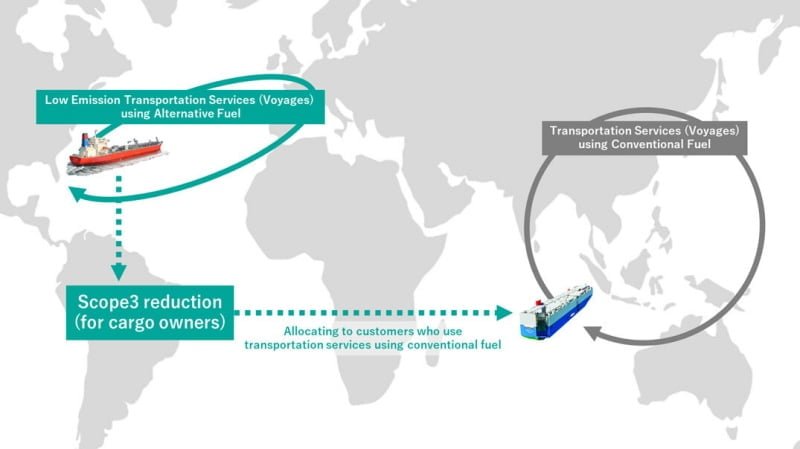Mitsui O.S.K. Lines, Ltd. (MOL) has taken a significant step forward in its commitment to environmental sustainability by announcing a successful insetting pilot program in collaboration with climate technology firm 123Carbon B.V. The initiative, aimed at supporting customers’ Scope 3 reduction targets in maritime transport, marks a milestone in MOL’s efforts to achieve net-zero emissions.
The pilot, completed in partnership with Methanex Corporation, involved the tokenization of greenhouse gas (GHG) emission reductions from the groundbreaking Net Zero Voyage conducted in February 2023. By leveraging biomethanol as a fuel, MOL sought to allocate GHG emission reductions to customers considering Scope 3 reductions from maritime transport services.
Under the Market Based Measures Accounting Framework published by the Smart Freight Centre, MOL will develop services to facilitate customers’ achievement of Scope 3 reduction targets. The initiative underwent rigorous third-party verification to ensure the accuracy of GHG emission reduction-related documents and MOL’s ownership of associated Scope 3 GHG reductions.
Digital certificates issued after verification are managed using blockchain technology, providing transparency and recording transaction history. Customers allocated tokens can claim GHG emission reductions and access reduction-related data on the platform, including vessel names, reduction methods, bunker dates of low emission fuel, emission factors used in reduction calculations, and the name of the third-party verifier.
Christoph Wolff, Chief Executive Officer of Smart Freight Centre, commented: “This initiative is categorized to be carbon insetting, which promotes decarbonization within the supply chain. The Market Based Measures Accounting Framework provides a standard framework for companies to rely on when expanding their insetting programs, in response to growing demand for insetting in the transport sector, including shipping. MOL, which has one of the world’s largest fleet, starting its carbon insetting initiative is a significant step forward towards achieving the net zero target in the shipping industry.”
MOL’s commitment to environmental sustainability is evident in its “MOL Group Environmental Vision 2.2,” which includes building business models that enable net-zero emissions. The collaboration with 123Carbon exemplifies this commitment, as MOL continues to partner with stakeholders to meet evolving decarbonization needs and accelerate the realization of net-zero targets.
123Carbon, a globally operating company based in the Netherlands, provides an independent, blockchain-based carbon insetting platform for multimodal transport. The platform is built on globally accepted book and claim methodologies, ensuring reliability and transparency in GHG emission reductions.
The successful completion of the insetting pilot underscores MOL’s leadership in driving innovation and sustainability in the maritime industry, paving the way for a more environmentally responsible future.
What is Insetting?
Insetting is a strategy used by companies to reduce their carbon footprint within their supply chains. Unlike offsetting, which involves compensating for emissions generated elsewhere, typically through purchasing carbon credits, insetting focuses on reducing emissions directly related to a company’s operations or products.
Source MOL

